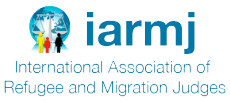The main issue was the extent to which asylum seekers may be prohibited from being employed and from studying while they are waiting to be recognised as refugees. The court held that the effect of s 2 of the Refugees Act was to permit any person to enter and to remain in this country for the purpose of seeking asylum from persecution on account of race, religion, nationality, political opinion or membership of a particular social group, or from a threat to his or her life or physical safety or freedom on account of external aggression, occupation, foreign domination or disruption of public order. If a person was granted refugee status, they were entitled to various rights specified in s 27 of the Act.
Regulation 7(1)(a) of the Refugees Act, when read together with the prescribed form, had the effect that every asylum seeker was prohibited by the conditions in his or her permit from undertaking employment or from studying. The court noted that Section 11(h) of the Act conferred upon the Standing Committee the power and the duty to determine the conditions under which a permit may be issued in so far as those conditions related to work and study. However, the court held that in the absence of the power to prohibit an applicant for asylum from taking up employment, or from studying, the Minister acted in conflict with the Constitution in purporting to do so.
The court held that a general prohibition will inevitably include amongst those that it affects applicants for asylum who have no reasonable means of support other than through employment. A prohibition against employment in those circumstances is a material invasion of human dignity, as guaranteed by s 10 of the Constitution, and is not justifiable in terms of s 36. A general prohibition that does not allow for study to be permitted in appropriate circumstances is unlawful for the same reasons.
Constitutional law; right to dignity; rights of asylum seekers; employment; education; rights of asylum seekers to work and study; constitutionality of national legislation.
The respondent and her son were Zimbabwean nationals who received a permit in terms of s 22(1) of the Refugees Act which included the standard conditions, and she and her son were thus prohibited respectively from undertaking employment and from studying. The respondent applied to the High Court for an order declaring the prohibition in Annexure 3 to the regulations to be contrary to the Constitution and directing the appellants to permit her and her son to be employed and to study respectively pending the finalisation of her application for asylum. The High Court granted the order, and the appellants brought an appeal to the Supreme Court of Appeal.
The appeal was upheld in part. The order was set aside and replaced with an order compelling the appellants to consider and determine whether the first applicant and her son respectively should be permitted to undertake employment and to study.
There is justification for limiting the right on the part of every applicant for asylum to undertake employment. Permitting any person at all times to undertake employment would imply that any person might freely enter and remain in this country so as to exercise that right. However, unlike some other countries that receive refugees, South Africa offers no State support to applicants for asylum, and thus a person who exercises his or her right to apply to apply for asylum, but who is destitute, will have no alternative but to turn to crime, or to begging, or to foraging. The deprivation of the freedom to work, when it threatens positively to degrade rather than merely to inhibit the realisation of the potential for self-fulfilment, cannot be justified. Similarly, the deprivation of the right to study when that opportunity is available cannot be justified.
